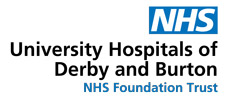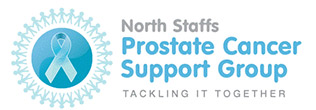The NEWPROMRI-PATHWAY study
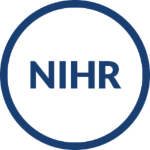 The NEWPROMRI-PATHWAY study is a collaborative research project involving Keele University and the University Hospitals of North Midlands (UHNM) NHS Trust, conducted as part of a doctoral fellowship funded by the National Institute for Health Research (NIHR).
The NEWPROMRI-PATHWAY study is a collaborative research project involving Keele University and the University Hospitals of North Midlands (UHNM) NHS Trust, conducted as part of a doctoral fellowship funded by the National Institute for Health Research (NIHR).
“Accelerate my diagnosis by avoiding unpleasant bone or CT scans and eliminate the need for injected MRI contrast agents—helping me get the right treatment faster" – Clive.

What are we doing?
We are working on a study to create a faster and more efficient way to handle prostate MRI scans. This new system will use computer software (clinical decision support system – CDSS) to help radiographers (the people who review the scans) make quick decisions in real-time. The goal is to use gadolinium contrast (a dye used in some MRI scans) only when necessary. The system will also allow for whole-body MRI scans to be done right away if needed, without the need for additional appointments.
The project has two main parts:
1. Development phase
Step 1A: We'll do a thorough review of existing studies to build a solid foundation for our approach.
Step 1B: We'll conduct surveys of radiologists (specialists who analyse scans) to understand the key factors they consider when making decisions about prostate MRIs.
Step 1C: Based on this information, we'll work with experts to develop a decision-support system to guide the new process.
Step 1D: We will hold two workshops:
- The first workshop will involve experts, who will help finalize the new process and create guidance for radiographers.
- The second workshop will include a larger group, including patients, to explain how the new pathway works.
2. Testing phase
After development, we will test the system to see how well it works.
To assess the diagnostic accuracy and safety of the prototype pathway, radiographers will undergo training to use the pathway. Their decisions will then be compared to historical decisions made by radiologists using a large anonymized dataset of 800 suspected prostate cancer cases.
How long will the study take?
It will take three years to complete the study.
Who are the research team?

Dr Matthew Dimmock
Matt is Eric’s Academic Supervisor. Matt is a Senior Lecturer in Radiography (Diagnostic Imaging) in the School of Allied Health Professions at Keele University. He is a physicist, whose primary area of research is computer modelling for novel imaging techniques. Matt has extensive research experience in all imaging modalities and is experienced in working with, and leading, teams incorporating researchers and clinicians from a broad range of disciplines.
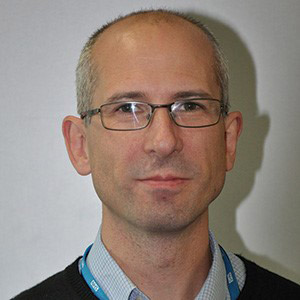
Dr Alex Clark
Alex is Eric's clinical mentor and supervisor, and is a senior consultant radiologist at University Hospitals of North Midlands specialising in genitourinary imaging and with over 20 years of experience in prostate MRI scan reporting. Alex has expertise in genitourinary, pelvic and pelvic floor imaging. Teaching and assessment of medical students and doctors in training is his area of special interest.

Professor Jonathan Hill
j.hill@keele.ac.uk | +44 (0) 1782 733900
Jonathan is Eric’s Doctoral Primary Supervisor. Jonathan is a Professor of Physiotherapy at Keele University and has led several large randomized controlled trials focused on improving the management of musculoskeletal conditions in primary care.
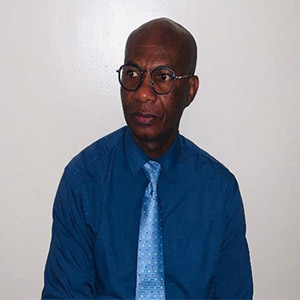
Eric Nduka Onwuharine
e.n.onwuharine@keele.ac.uk | eric.onwuharine@uhnm.nhs.uk | +44(0)7837109493
Eric N. Onwuharine, Doctoral Clinical and Practitioner Academic Fellow, NIHR303584, is funded by the NIHR for this research project. Eric is the chief investigator for this study. With over 15 years of experience in prostate MRI, Eric brings a wealth of knowledge to the project.
Who are we working with?
Radiographers in UHNM and UHDB will use the new computer software to test the system to see how well it works.
CrossCover will assist in developing computer software (CDSS) designed to support radiographers in making real-time decisions. CrossCover is a multi-award-winning platform developed by clinicians to streamline workflows for clinical pathways in both primary and secondary care. Supported by SBRI Healthcare, an NHS England and NHS Improvement initiative, and backed by the Academic Health Science Networks (AHSNs), CrossCover is at the forefront of enhancing CDSS.
The North Staffs Prostate Cancer Support Group (NSPCSG) is dedicated to helping individuals and families affected by prostate cancer. They provide a supportive environment where men dealing with the illness, as well as those who have successfully managed or recovered from it, can connect and share experiences. The NSPCSG is not only committed to supporting individuals and families but also actively promotes and backs research in prostate cancer. Their dedication to research underscores their mission to make a lasting impact in the fight against prostate cancer.
Download the NEWPROMRI-PATHWAY banner (jpg) (242 KB)
This file may not be suitable for some users of assistive technology. Request an accessible format.



